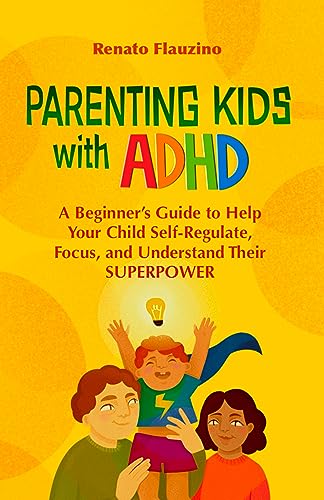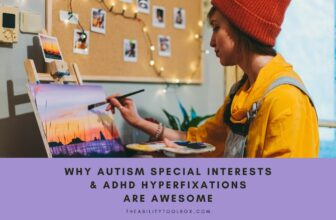When your child receives an ADHD diagnosis, it's normal to feel a little overwhelmed. You've noticed that your child was in need of a little extra support, and you've probably wondered a couple of times a day how best to help them. However, receiving a diagnosis does not mean understanding your child's characteristics and how to help them cope. So here is some information to help you understand how to support your child with ADHD. Let's start by figuring out why your child behaves the way they do, and then look at how to help them thrive.
What is ADHD and what causes it?
Children with Attention Deficit Hyperactivity Disorder (ADHD) struggle with paying attention, hyperactivity, and/or lack of inhibition. This sometimes makes it difficult for them to cope with the challenges of their daily lives and the increasing demands of their families, schools, and society to regulate themselves as they mature. Although for decades a significant number of clinicians adhered to the fallacious idea that ADHD was the result of poor parenting, we now know that ADHD is a neurodevelopmental disorder: largely biological in origin, with a strong genetic/hereditary basis.
What makes my child so distracted and restless?
Raising a child with ADHD can be challenging. Beyond the characteristics of the disorder itself, children with ADHD are often at increased risk for other co-occurring disorders. Therefore, the challenge is often twofold. But primarily, the difficulty that children with ADHD face in meeting the demands of society is due to deficits in self-regulation and executive functioning. Specifically, in their ability to control their own behavior, internally monitor what they are doing, plan ahead, and inhibit their impulses. This is why your child can be easily distracted when trying to follow a routine, face difficulties in sticking to a schedule, or fail to move from focusing on the here and now to focusing on what is likely to come next in life. Many kids with ADHD also struggle with sensory overload.
Difficulty in self-regulation can make the behavior of children with ADHD inconsistent. This explains why your child manages to successfully complete all the steps of a daily routine on some days but seems to have lost memory and requires your full support on others. Many parents of children with ADHD often express that they have the feeling that their children do not make an effort or do not stick to their routines on purpose. Indeed, this can be very frustrating. But this happens because, as children with ADHD are not internally self-regulating, they are very dependent on the cues around them. If they find something at home or on screens that captures their attention, they are more likely to get distracted and forget to do their homework.
Another area in which children with ADHD often respond inconsistently is in their response to consequences and rewards offered by parents and other adults. Many parents report that one day they were able to motivate their child by offering a benefit if their behavior was appropriate, such as ice cream or spending time together, and the next day the child was no longer interested in the same reward. The first time you offer an incentive to a child with ADHD, it can have a big impact, but they are also likely to get bored or lose interest quickly afterward. Research has found that this inconsistency is closely related to the way a neurotransmitter called dopamine is processed in the brains of children with ADHD.
How can I help my child with ADHD?
The good news is that some parenting strategies have proven to be very helpful in supporting children with ADHD. Through some of these techniques, you can help them compensate for difficulties in self-regulation or deficits in information processing. Early intervention is key to helping children. The earlier we address difficulties, the more likely we are to prevent problems such as poor school performance or low self-esteem. Let's take a look at some ideas to help your child:
- You can start by getting informed about ADHD with scientifically-based data. There is a lot of information on the internet about the assessment and treatment of ADHD. You can also find online resources and recommendations for the best mental health apps to manage ADHD symptoms. Please pay attention to the quality of the information, to distinguish between accurate and inaccurate data.
- Being proactive can save you a lot of trouble. Instead of reacting to your child's behavior without planning what you want to achieve, you can try to anticipate and take the initiative. For example, you can think in advance about what plans you are going to make with your child, where, and when, taking into account your child's characteristics. As adults, we have the opportunity to think in advance about which situations are going to be really difficult for our child and will require more support, or which are triggers for certain behaviors that we should avoid.
- Taking care of yourself can help you be emotionally better prepared to care for your child. Taking a few minutes each day to reflect on what you feel can help you recharge and look at life's challenges from a different perspective. It may be a good option to start with online resources such as Wysa, a mental health app, which includes reflection and mindfulness tools.
- A healthy lifestyle can prevent ADHD symptoms from worsening. Nutritious food, physical activity, and a good amount and quality of sleep can help in this respect. Wysa can help you with this goal through its tools to promote good sleep habits, physical activity, and healthy eating tips.
- Provide therapeutic and fun activities to give your child an outlet for their energy. Click here to learn more about summer camps for kids with ADHD.
- Setting priorities helps to better manage our energy. For example, you can take a few minutes to ask yourself what is important in your relationship with your child. What are the main obstacles and responsibilities that you need to help your child overcome or fulfill? Because of difficulties in self-regulation, children with ADHD may receive more criticism compared to other children. This is probably as much of a drain on you as it is on your child's self-esteem. Developing a sense of priorities helps us choose which battles are worth fighting and which are not.
- Paying positive attention to your child can be the most valuable reward. If you teach your child that good behaviors get your attention, they are more likely to repeat them. On the contrary, if they get your attention mostly through problem behaviors, they are more likely to repeat them as well. Paying positive attention sometimes requires us to make a conscious effort to identify small moments when our child is making an effort to do what we ask and praise them by telling them exactly what they have done well.
- Clear directions will help your child better understand what you are asking of them. Children with ADHD need to know exactly what others expect of them, without ambiguity. Also, try not to give too many directions at once (most children are only able to follow one or two directions at a time), and make sure your child is paying attention to you (through eye contact).
- Giving feedback to your child can help them learn from their achievements and mistakes. Children with ADHD may find it more difficult to understand the connection between their behavior and its consequences. As a parent, you can help your child understand that connection, help them to be aware of what they are doing right (so they know they need to stay on track), or let them know what aspect of what they are doing may be problematic for them or others.
Conclusion
Naturally, it will probably not be easy to implement all these ideas at the same time or every day. There will be better days and there will be harder ones. Be patient with yourself and your child. Raising a child with ADHD can be emotionally and physically demanding, but taking charge of their care will promote the health of the whole family and is also an opportunity for you to fulfill yourself as a parent, and for your child to live a happy and healthy life.
More Resources to Support Parents of Kids with ADHD
These books by peer experts and educators can help you learn more about how to support your child with ADHD.
More ADHD & Neurodiversity Resources in The Ability Toolbox
- ADHD Merch: T-Shirts, Pins & Stickers for Proud Neurodivergents
- So You’ve Just Received an Adult ADHD Diagnosis. Now What?
- 15 Sensory Toys for Adults With Autism, ADHD, and Anxiety
- Beautiful Stim & Fidget Jewelry for Adults with Anxiety, Autism, & ADHD
- Cuddly Weighted Stuffed Animals for Kids and Adults to Hug
Photo by Alexandr Podvalny on Unsplash
Follow me down the rabbit hole!
I'm Alice and I live with a dizzying assortment of invisible disabilities, including ADHD and fibromyalgia. I write to raise awareness and end the stigma surrounding mental and chronic illnesses of all kinds.
Dr. Wilson graduated from Rosalind Franklin University of Medicine and Science and completed her residency in Internal Medicine at Advocate Good Shepherd Hospital in Barrington, IL. Dr. Wilson specializes in providing culturally competent and trauma-informed care to patients with physical disabilities. In addition to her private practice, she works as a science communicator, teaching health literacy to middle school and high school students in her local school district.















